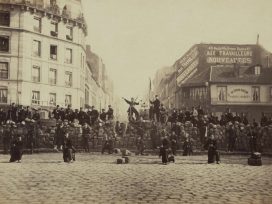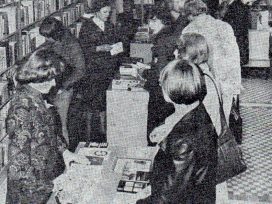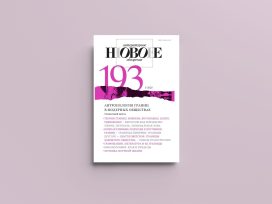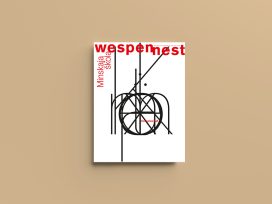Ag Apolloni: I would like to start by asking you about your family’s background, because I see their importance and their impact in your books, especially Thomas and Beulah.
Rita Dove: I grew up in a first generation middle-class African American family in Akron, Ohio, which is in the northern Midwestern portion of the United States. Ohio borders Canada, and my hometown was known as the “Rubber Capital of the World” because all of the major tire factories were located there. My family came up from the South – that is, my mother’s parents came from Washington DC and Tennessee, and my father’s family migrated from rural Georgia; my father was two years old when his parents arrived in Ohio, in 1923. So although I grew up as a Midwestern child, there was a strong current of southern heritage running through my greater family. My maternal grandparents were the inspiration for Thomas and Beulah. My grandfather came north as a young man, fleeing a Jim Crow incident in his hometown in Tennessee. He had formed a musical duo with a friend who died on the riverboat that took them up the Mississippi to Ohio. As a child, I was unaware of my grandfather’s past and indeed had never thought of him as anything other than my grandfather – so that after his death, when my grandmother began telling me stories about his youthful adventures as a means of cherishing his memory, I was haunted by the young man who had been a stranger to me. Years later, when I began writing Thomas and Beulah, those poems became a way of getting to know the young Thomas in order to understand the grandfather I had loved.
Did you know as a child that you wanted to be a poet and what is the story of your first poetry?
I had no role models for an artistic life, so the idea of becoming a poet simply wasn’t on my radar screen. But from the moment I could decipher the squiggles on the page, I became an avid reader; and later, when I couldn’t find characters in books that resembled me, I was driven to create them. I remember finishing a story in a science fiction magazine and picking up a pencil to continue the adventure, with a little black girl filling the hero’s shoes. Reading was my ever-expanding universe; but when I would get lost in a paragraph or passage because the sounds that the words made and the lilt of the phrases wove as much magic as the plot, I knew I wanted to do that, too – which meant writing poetry. Every summer vacation my brother and I would start a little neighbourhood newspaper, and every summer I would quit and launch my own magazine, usually called Poet’s Delight, or something like that. Writing was play and joy and excitement, but I also believed that was all it was – something one did for fun, a child’s hobby – and that when I grew up, I would have to put away childish games and become an adult. I didn’t actively try to become a writer – that is, to write and rewrite and strive for publication– until I was in college. After that, it became a matter of trying to figure out a way to earn a living so that I could write – in other words, find a job to support my passion.
For many writers, childhood is a kind of a lost paradise. Is it the same for you?
I was a painfully shy child and was bullied in school for being smart and black and not very cute, so childhood was not a total paradise. Yet the delight of discovery – the way a prism could break light into rainbows while mixing a rainbow of pigments on the page would turn the paper black, or how I could feel completely, happily alone for an entire afternoon watching clouds dance across the sky – was a kind of paradise that can never be re-entered.
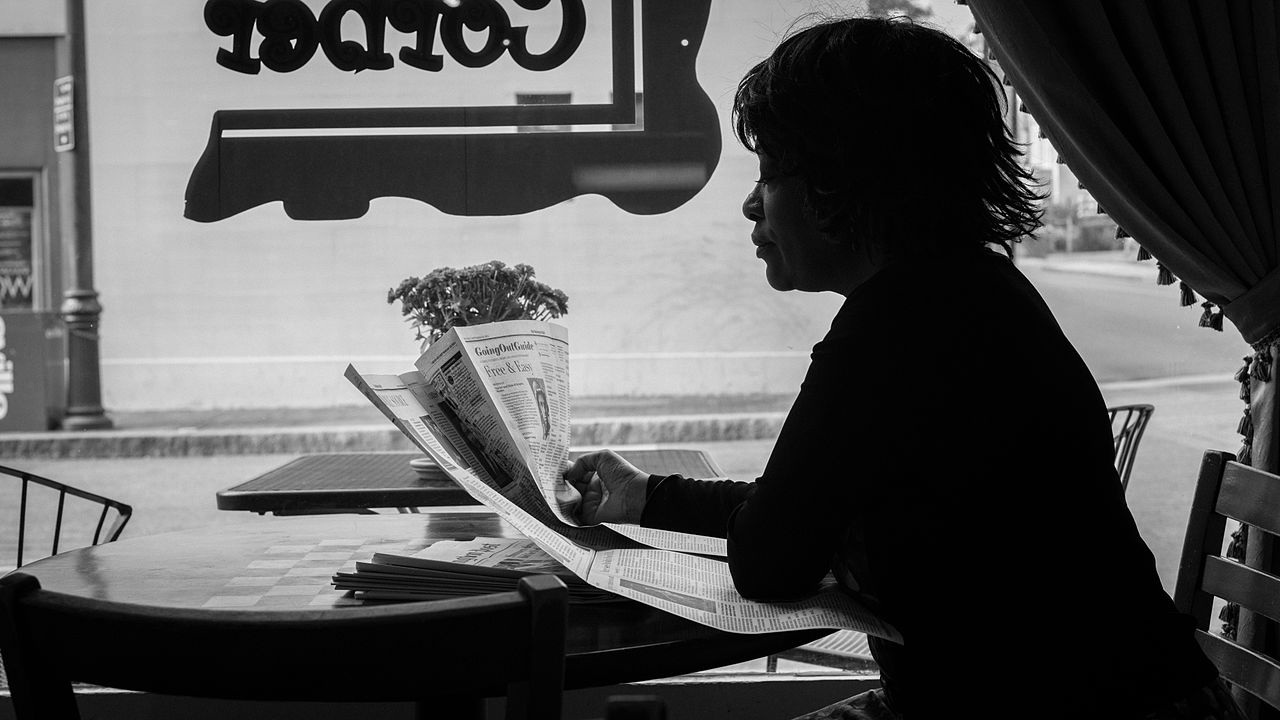
Rita Dove by window. Photo: Eduardo Montes-Bradley. Source: Wikimedia
What is your writing routine?
I will work with lots of fragments, from several different poems, for a long time before anything coheres. I may start with a line I instinctively know belongs in the middle of the poem, so I’ll write it down in the middle of the page. Other lines may gather around that first one; or I might skip to the beginning and write until I get stuck, at which point I’ll turn to another collection of fragments and work on them until I reach a dead end there, and so on. The process is like assembling a jigsaw puzzle; in time – days, weeks, months – a workable draft of a poem will emerge, and then another, and another. Each draft is clipped to its fragments and filed in a coloured folder; so that instead of organizing a poem-in-progress by a title, which might change, or by theme, which can limit the imagination – I’ll start each writing day choosing a folder by its colour. Following my instincts. Then the polishing begins, which can take months. It’s a nerve-wracking process, but I’ve found it’s the best way for me to cultivate the subconscious connections. Though I find myself writing through a period of limbo for quite a while, I frequently end up finishing three or four poems in the space of a few days.
Where does your inspiration come from?
Everywhere. Everything. I never know what will ignite the spark. Even after all these years as a poet, I still find myself constantly amazed by the world – the slant of sunlight through a snow-laden branch, the crunch of dry husks underfoot, the utter fearlessness of a toddler exploring her environment for the first time, the things people do for and to each other.
How important is the imagination in your poetry?
Utterly, completely important. But so is the language, and so is the silence behind the language.
How do you include the emotional memory in your poems?
This is a difficult question – you might as well ask how I find the inspiration for my poems! Like many aspects of the creative process, it is a mystery I dare not try to explain too neatly. Including the emotional memory is fostered by the drive to find words to express the inexpressible, which means searching for words that not only awaken the imagination but convey the music – the rhythms – that an experience has generated. First I write out the actual memory through detail – not always the facts, but rather dreamed details. This reimagining opens up emotional pathways which I’ll follow like Alice in Wonderland – blindly, boldly – until the poem gives me its answer.
You once said: “even a leaf falling from a tree is a pretty dramatic story… to the leaf”. Is the way to feel the other’s pain that made you a poet?
I don’t know. It’s just the way I’m wired. Doesn’t every artist feel the other’s pain? I believe every human being has a natural capacity to feel another’s pain, but it is the artist who finds the way to articulate that empathy. This kind of connection is one of the touchstones of all art; but I wouldn’t want to suggest that empathy for only the painful side of life has made me a poet. Let’s just say that empathy for the human condition – the joys as well as the sorrows – coupled with understanding another person’s experiences and emotions through the written word, is what I find so compelling in poetry. Still, the quality is not confined to poetry – think of Mozart’s Requiem or Picasso’s Guernica, which can fill any of us, regardless of language or nationality, with terror and grief.
Your sense of history and philosophical resonance was appeared in The Yellow House on the Corner. Now it’s easy to see that this first book is the preamble for all your books. But, what does the first book mean to you?
As a matter of fact, I have just been going over the manuscript for my next book, Collected Poems 1974–2004, so I’ve had the strange experience of reading that first book again. You’re correct that from this vantage point, it’s easy to see The Yellow House on the Corner as a preamble to all my later work. What I’ve noticed, however, is how much of that first book was driven by a search for meaning – or rather, a search for the engine behind my longing as an artist. Much of the surrealistic imagery found in those poems is a reflection of my frustration at not being able to find the right words for what I felt.
To write a good poem, how important are experience and reading?
My love affair with poetry started with reading: As a young girl reading Shakespeare, I was astonished by all the worlds I could inhabit merely by opening a book, without ever leaving my chair. I wanted to explore those worlds; then I wanted to step into worlds that I had created myself. Experience can be a trigger for the poem, but one needn’t have had the experience oneself. Relating to an incident from the inside out – inhabiting its world – is a way of writing about something one has not experienced personally. What is crucial is to pay attention to the spark that stopped me in my tracks in the first place – an overheard phrase, a bird flying back to its nest, a particularly brilliant shade of yellow – and then follow that impulse. It’s a way of tracking the subconscious while using the tools of my trade, which are language, music, imagery. Music is a pretty important element for me. When I’m revising a poem, I will hear the lines in my head, much the same as reading the poem aloud. The auditory component is vital, because a poem must use every resource at its disposal in order to enrapture the reader, and that includes orchestrating the very breath the reader takes as she reads the poem. Intertwine the sound with the sense, the meaning of the words with their melodic signatures, the story being told with the rhythm of breathing in and breathing out – and the poem will be more convincing because it has aligned the reader’s body with the poet’s consciousness.
On the Bus with Rosa Parks is an interesting book with living characters, deep reflections and strong emotions about the oppressive political system during the Civil Rights movement? How important was Rosa Parks for you and how did you create this panoramic imagery of contemporary American history in verses?
I was three years old when Rosa Parks refused to get up from her seat on a public bus in Montgomery, Alabama; so for me she existed mostly as an icon, a revered figure shimmering just beyond reality. And what an unlikely hero! She was a woman, she was petite; she looked like the sweetest person on earth. I couldn’t begin to imagine the amount of fortitude, of grace under stress that she had to muster in order to do nothing – that is, not to rise from her seat when commanded to do so. Such courage in the face of such intractable hatred – how did she do it? As I grew older, I found myself achieving things I had never dreamed myself capable of – speaking before thousands about poetry, holding press conferences as Poet Laureate of the United States – and I began to understand that sometimes being in the right place at the right time makes you the right person; and you find yourself doing the right thing, the brave and difficult thing, because you cannot imagine walking away from everything you believe in. This is how Rosa Parks became human to me; it was this human side of the civil rights struggle I wanted to write about.
As an African American I have an intimate connection to the wider world; it’s a necessary way of looking at reality, to be able to conduct business in the natural world while being able to see oneself as “Other”. History is personal to me. I spent my eleventh birthday standing in front of a boxy black and white TV in my cousins’ house in Washington, D.C., searching for my father among the blurry images of the crowd amassed at the Lincoln Memorial. It was August 28, 1963, the day of the “March on Washington”; I was proud, scared, and just a little peeved that I had to share my birthday with Martin Luther King, Jr.’s “I have a dream” speech! I’ve never lost that acute sense of connection between the personal and the world, the elements that constitute our notions of history and how people come to figure in that narrative.
In your poems you have consciously tried to put a narrative into lyric poems. Would you tell us why you unite what the modernism had separated?
Modernism was forged during a period when the world seemed to be falling apart – “the centre will not hold,” Ezra Pound wrote – because the rise of cities tore family structures asunder even while wars tore nations apart. The separation of narrative and lyric was as much a protest against romanticism, which used the seduction of plot to float its emotional declarations, as it was an attempt to shake writers and readers out a contentment borne of a smug acceptance of traditional forms; the reassuring cadences of rhyming quatrains, for instance. But what goes around comes around, and Ezra Pound’s exhortation to “Make it new!” should have also included the footnote “Repeat as needed.” In other words, the new becomes old, and what used to startle us out of complacency becomes, in time, the New Complacency. We have become used to seeing stark, short lyric poems describing a brief moment; these lyrics are not expected to explain their surroundings or defend their outbursts. Insisting on having a License to Be Sensitive means that poems can become self-indulgent, opaque, and sentimental. Narrative poetry was gradually relegated to the camps of Anecdote and Humour, and then generally disregarded, looked down upon as not Real Poetry at all. The very best aspects of Robert Frost – his gift for rendering vernacular rhythms, his characters, the subtle intertwinings of action and unspoken emotion – were lumped under the rubric “Rustic Interlude”. But narrative and lyric are really two sides of the same coin. In a narrative poem, a story is being told on the surface, although the emotional states of those involved are throbbing underneath all the talk and action. In a lyric poem a moment is frozen in time, and the speaker contemplates the details of his circumstances within that suspension – it feels quite direct and intimate, but if we read carefully, we can feel the pressure of time on that poetic bubble; at some point the speaker will have to step out of the charmed sphere and enter ordinary life again.
In “Mother Love”, you used the myth of Persephone as an allusion, making myth as something ordinary. Do you think that the hell of underworld is the same as the hell of our world?
The hell of our world is far worse than the Greek underworld! In Greek mythology, Hades is a place of perpetual darkness and pain; suffering is constant and predictable, and you know why you’re there. In our world, we never know where the violence or pain and suffering will sprout up next. This unpredictability is coupled with a profound feeling of helplessness, rage that has nowhere to go because so much of the pain is unwarranted and undeserved. I’d say that makes our hell a little more horrific.
After reading Persephone in Hell, it’s clearly visible that the rhythm of your poems derive from your experience with dancing, singing and playing the cello. Could you describe the connection between you and music, and also between music and the poetry?
I began playing the cello when I was ten years old; music of all types, from blues to classical, formed the aural underpinning of my childhood and beyond. I learned to appreciate music from the outside in – through listening – but also from the inside out, by creating it as a performer. My connection to music is so strong that if I had not been a poet, I am certain I would have become a professional cellist. I believe a poem should sing; it should float on the music of its saying.
American Smooth is infused with dance rhythm, jazz atmosphere and different musical titles: Fox trot, Lullaby, Soprano, Bolero, Samba, Rhumba, Blues, etc. Was music the first impulse to write this book?
No, it was lightning! Lightning quite literally struck – our house, in 1998, during a rainstorm. The house caught fire and burned down. Two weeks afterwards my husband and I were still running around in borrowed clothes, covered in ashes, recovering things out of the debris, and our neighbours decided they wanted to do something special for us. So they invited us to a black tie dinner dance that weekend and told us: “It’s formal, so go buy yourself something grand.” Crazily enough, the first clothing we bought after the calamity was formal attire – an evening gown, a tuxedo. It was a miraculous feeling, buying a gown in the middle of all that misery. Our neighbours had inadvertently given us the greatest gift of all – the gift of beauty and grace.
So off we went to the ball. As we sat watching couples waltzing across the parquet, I remarked, “I’ve always wanted to learn to dance like that” – and before we knew it, the entire neighbourhood signed up for a free introductory lesson at the local dance studio. So we started taking ballroom lessons. I wasn’t thinking about writing; I was relearning how to live – no poems, no thinking about poems, just dancing. And then, when I was least expecting it, a poem – about dancing, called “Foxtrot Fridays” – just slipped out. I began to want to write again. After all, poetry is already a kind of dance: the play of contemporary speech patterns against the bass-line of Shakespeare’s iambic pentameter gives the English language a kind of syncopation, a rhythm under the melody. Just as the dancer is limited by gravity and the capabilities of the body, poetic expression is continually restrained by the dimensions of the page, the capacity of the lungs, and the very architecture of language. Ballroom dancing helped me understand that poetry has a physical component – that the length of a line, for instance, influences how slowly or quickly the reader breathes.
Sonata Mulattica referred Beethoven’s Kreutzer Sonata, which was originally dedicated to a mulatto violinist George Bridgetower. It’s like a novel in verses. It has musical theme and form; also it is a poem, as well as a novel and a drama. How did you write it and how much time you spent on it?
Sonata Mulattica took me about five years to write. If I had known at the outset how many years I would be committing to one vision, I may not have had the courage to forge on. As it was, I had already written myself deep into the book’s territory before I realize how large it would become. It began innocently enough: one evening my husband and I were watching Immortal Beloved, a movie about Beethoven, in which George Bridgetower makes a cameo appearance. My curiosity was kindled: Who was this man of colour, strutting around eighteenth century Europe with a violin tucked under his arm? So I googled him, which sparked my first investigations into his life. At that point, I had no intention of writing a book; I merely wanted to understand what it was like to live as a black person in Europe at that time, and writing became a means to exploring his state of mind. Very often I find myself writing poems in order to talk with the characters, and this case was no different. I began writing, mostly fragments; and as I grew acquainted with the world that had shaped him I realized that what I actually had to do was portray an entire cosmology rather than one brief moment in history’s spotlight. This man and his world were far too complex for dabbling; I had to commit myself fully to the task.
My routine was not very scientific, though it worked for me: First I would do research, following interesting tangents as they appeared, all without trying to line things up chronologically. Then I would turn to the poems, writing without looking at the research, for a period of about three months; then it was back to research, and so on. I saved all the fact-checking until the last six months, and only in the last three months did I finally put together a timeline and tack a map on the wall in order to track each character’s journey. I did not write the poems in order; in fact, one of the Beethoven poems (“Vienna Spring”) was the very first to be completed. I needed to embody the research; to become so familiar with his world that I was living in it rather than referring to it. I can’t explain any better; it all seemed rather enchanted. I was in deep conversation with all of its characters – proud Haydn and haunted Beethoven, prodigy Bridgetower and his charismatic father, the chatty wardrobe mistress and the paunchy Prince of Wales.
All poets know the anxiety of influence. How do you see this anxiety in writing process?
My constant worry is that I won’t realize when I’ve been influenced; I’m terrified I’ll subconsciously lift a phrase or echo a cadence from another poet. Since I am musical, I tend to perceive and organize the world in terms of rhythm and sounds, shades of meaning which emerge through the nuanced lilt of vocalization – and that kind of musical mimicry is more difficult to detect.
As a poet and as a spokesperson for poetry, how do you see the connection of teaching poetry with writing poetry?
Teaching poetry is the polar opposite of writing poetry. One writes in solitude but teaches within a social situation; when creating a poem the writer lives silently inside her head, whereas teaching requires talking, explaining, before a public. One uses a different part of the brain to teach, since one is tasked with articulating the mysterious process of creation. Much of my teaching involves reducing the student-poet’s fear – after all, she is struggling to put into words what is essentially unsayable. Our emotional matrices are in constant flux, shifting to accommodate our encounters on the physical plane of existence, and translating these shape shifters into words on a page is a daunting task. So I try to turn my students’ focus to the tools of the trade. Most people readily accept that a painter must acquaint herself with the properties of paints and canvas; she must know what each brush is good for as well as understand the rules of perspective and the musculature of the human body. The instruments at the writer’s disposal are grammar, vocabulary, and syntax; consequently, the young poet must build vocabulary, develop keen observational skills and study grammar. Punctuation can be used to orchestrate the pacing of a meditation; syntax is the musculature of the sentence as it is deployed across the blank page.
You have given advices to the students for a long time. What can you say to those students who want to be poets?
I ask them who they are reading. I don’t really need to know what’s on their reading list, just that it’s long and varied. If a student claims not to like to read, I know that student will not last as a poet. A writer loves literature first and writing second. Honor the art, not your ego.
What are your writing plans right now?
At the moment I am involved in a project called “Reimagining the Ghetto of Venice”. As part of an international roster of artists and writers, I have been asked to reflect upon the concept of the ghetto, past and present. (The word ghetto was first mentioned in conjunction with the establishment of the Jewish enclave in Venice, 500 years ago.) The city and university of Venice are planning a commemoration later this year. Many of my recent poems have been part of this project. My original idea – one long poem, or a group of 5-6 shorter pieces – has expanded into a much larger concept; I don’t know where it will end, but I’m happily following the Muse wherever she chooses to lead me.
